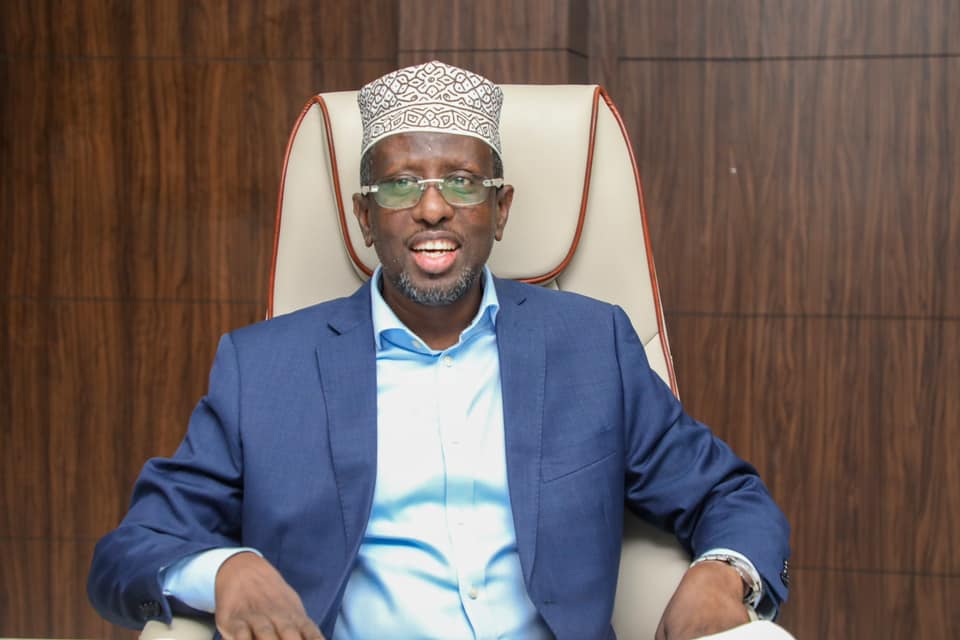Is the man behind one of South Africa’s biggest energy showcase events a convicted fraudster?
That’s the question hovering over African Energy Week, due to start in Cape Town on 16 October and be attended by petroleum ministers from several countries.
The event is championed by controversial Cameroonian lawyer NJ Ayuk, who was widely reported to have been convicted of fraud in 2007 for impersonating a United States (US) congressman.
Though Ayuk denies having a conviction against him, court documents have tracked his career in the petroleum industry to his detriment, most recently last month in Namibia where his involvement with the state was flagged by a prominent civil society think tank.
The US court documents, seen by the Sunday Times, allege a man called Njock Eyong was convicted of masterminding a scheme involving fraudulent documentation for African visa applicants.
Ayuk’s full name is Njock Ayuk Eyong, though he now simply calls himself NJ Ayuk. The documents identify the convicted man as a Cameroon citizen who pleaded guilty to fraud and misuse of visas and permits, in addition to impersonating a federal officer.
A copy of some of the documentation was forwarded to Ayuk last week via his spokesperson Gradie Mbono, who declined to clarify the reported link. However, Mbono reiterated that Ayuk was never convicted: “There are no convictions, and any claims are false. These allegations have been debunked many times.”
Mbono added: “Mr Ayuk is a highly respected lawyer, two times best-selling author (‘Billions at Play’ and, recently, ‘A Just Transition’) and founded a law firm which became the first African law firm with 200 lawyers that is listed on the German Stock Exchange in Düsseldorf. He has gone under the most stringent scrutiny by all regulatory authorities which cleared approval.”
She said it’s “a travesty and disgusting that this kind of treatment of black and Jewish legal professionals still exists and should never occur because of their work on energy poverty and fighting for the rule of law in Africa”.
Mbono declined to clarify the apparent link between Ayuk and the US court documents.
Among his many titles, Ayuk is chair of the powerful Africa Energy Chamber that hosts African Energy Week.
The chamber website touts African Energy Week as one of the premier gatherings of its kind, curiously taking place just a week after Africa Oil Week at the same venue, the Cape Town International Convention Centre.
“According to Ayuk, this event is set to elevate the conversation surrounding Africa’s rapidly expanding energy sector,” the chamber website says. “The continent, with its rich resources, must seize the opportunity to capitalise on its vast oil and gas potential. The collective knowledge and expertise of industry leaders present at the event aim to drive positive change, prioritise the eradication of energy poverty, promote sustainable practices, and foster an environment conducive for investment and growth.”
Speakers featuring on the programme include heads of state and petroleum ministers from across the continent, including Senegal’s president Macky Sall and Namibian president Hage Geingob. The mineral resources and energy department last week said it was unaware of any concerns around Ayuk.
“The department has participated in the African Energy Week since its inception in 2021. This year’s edition is on the calendar of events that the department intends to attend.”
Despite Ayuk distancing himself from the US conviction, the claim has been widely reported and even features on his Wikipedia profile. According to UK-based Climate Change News, concerns about Ayuk explain why the UN Economic Commission for Africa last year scrapped an energy investment initiative.
In a statement in November last year, ECA said it had cancelled the initiative “after reviewing its relationship with some of the private sector partners” — though the organisation did not give further details.
Ayuk’s allegedly fraudulent past has also been flagged by the Namibian Institute for Public Policy Research, which last month voiced concern about his ties with the Namibian government.
IPPR executive director Graham Hopwood said the involvement of tainted individuals in high-profile events did nothing to dispel the air of corruption hanging over the petroleum industry in Africa, particularly in light of recent scandals in Angola, Equatorial Guinea and Nigeria.
“From our point of view as a Namibian civil society organisation, we want to keep corrupt influences well away from our developing upstream petroleum sector,” Hopwood told the Sunday Times last week. “We don’t want to replicate the experiences of Nigeria, Angola or Equatorial Guinea. In fact, we have to learn from those mistakes and ring-fence our oil industry from corrupt actors.”
Contacted for comment this week, the US consulate in South Africa said it had no mandate to authenticate US court documents. The defence counsel involved in the case, now in Washington, has yet to respond to queries.
Local energy sector stakeholders this week said Ayuk’s involvement in a major event detracted from the industry’s ambition of promoting good governance.
“Energy has some skeletons in its closet, and this doesn’t do the reputation of the industry any good,”said one industry commentator who attended the recent Johannesburg Mining Indaba. “We should indeed be talking more about the [continent’s] oil and gas endowment, but should we be talking about it in a forum organised by an [alleged] convicted fraudster?”
Ayuk has previously made headlines in South Africa, notably a run-in with the Mail & Guardian newspaper which reported on his link to a R14,5 billion oil deal involving South Africa and South Sudan.
-Sunday Times










